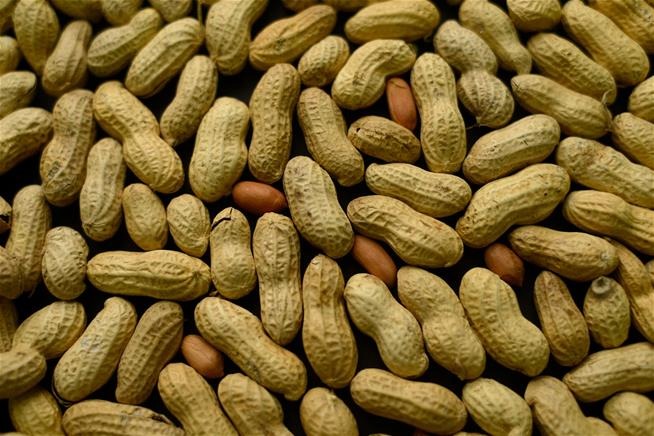Key To Preventing Peanut Allergies Is ... Peanuts
A study conducted last year found that babies who were fed "peanut butter mush" were 80% less likely to develop a peanut allergy by age 5, NPR reports. The youngsters in that study, who started eating peanuts between 4 and 11 months, were deemed high-risk due to family history or eczema. In a follow-up study released Friday,researchers found that kids' tolerance of peanuts remained even after they stopped eating peanuts for a year. The National Institute of Allergy and Infectious Diseases on Friday released proposed guidelines based on the finding that recommend kids at high risk of allergies be fed peanuts starting between 4 and 6 months, the New York Times reports. That, the Times notes, runs counter to the World Health Organization recommendation that babies consume only breast milk for the first six months of life. The new guidelines do recommend that infants that already have an egg allergy or eczema be evaluated by an allergist before peanuts are introduced. And early introduction of other commonly allergenic foods—such as eggs, yogurt, sesame, whitefish, and wheat—may also prevent allergies, according to a King's College London study that found just 2.4% of kids who ate those foods on a regular basis developed an allergy. Of kids who were fed only breast milk in their first six months, more than 7% developed allergies.
Related:
- 11 Toughest Restaurants to Get Into
- Outrage After Whole Foods Puts Peeled Oranges in Plastic
- Is This the Best Diet for Weight Loss?
This article was originally published on March 7, 2016 by Luke Roney
